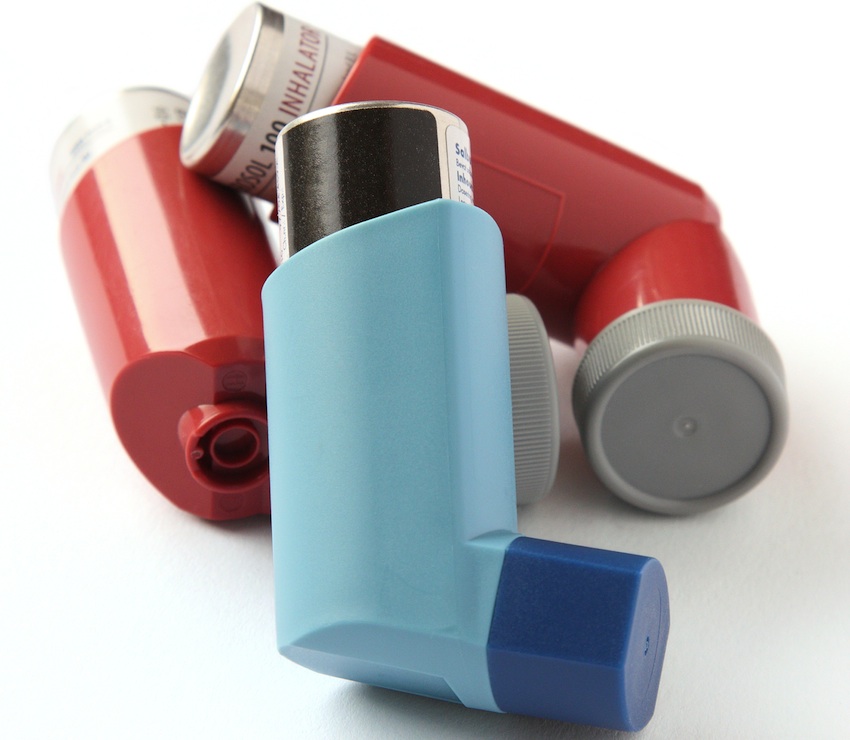Boston Children’s Starts Asthma Initiative

Asthma inhalers image via Shutterstock.
There are more than 22 million people in the U.S. who have been diagnosed with asthma and 6.5 million of those affected are children, making asthma the most common chronic childhood condition in the country.
Asthma affects the lungs and airways and when an individual with asthma has an attack, they feel as though they can’t breathe. Asthma attacks, which often bring children into the Boston Children’s emergency room, can be triggered by dust, mold, pests like mice or cockroaches, polluted air, or cigarette smoke. So unlike many other diseases, there are environmental causes of asthma and can be changed.
So when doctors at Boston Children’s Hospital noticed that their waiting rooms were full of children who were struggling with asthma, especially children from low-income neighborhoods in the Boston area, they decided to do something about it. To help parents get rid of the above triggers, Boston Children’s developed a program called the Community Asthma Initiative. Their website describes the program:
“The Boston Children’s Hospital Community Asthma Initiative (CAI) was developed to help improve the health and quality of life of children with asthma and their families. Since asthma hospitalizations and Emergency Department visits are disproportionately high for African-American and Latino children, the hospital wanted to address this important health disparity.
CAI serves children who live in Boston, are 2 to 18 years old and have been either seen in Boston Children’s Emergency Department or hospitalized for asthma. We also accept referrals from primary care providers and asthma specialists within the hospital’s network.
Our program works with each family to understand their child’s asthma and the medications used to treat it, and to identify and reduce asthma triggers in the home and other places where the child spends time.”
The initiative, which is now seven years old, identifies children who come to the hospital frequently with asthma attacks. Program staffers then reach out to the parents to talk to them about helping their children stay out of the hospital by making changes in their homes. Finally, a community health worker visits the child’s home and helps the parents identify and eliminate the things in their households that trigger asthma attacks, like dust and mice.
Is it working? Absolutely. In the past seven years, doctors from Boston Children’s report that there is a 56 percent reduction in patients with emergency room visits because of this program, according to an NPR interview. And the good news is spreading. Alabama, Tennessee, Rhode Island, Illinois, Indiana, Delaware, Florida, and Ohio created similar programs based off of Boston Children’s Hospital’s model.


